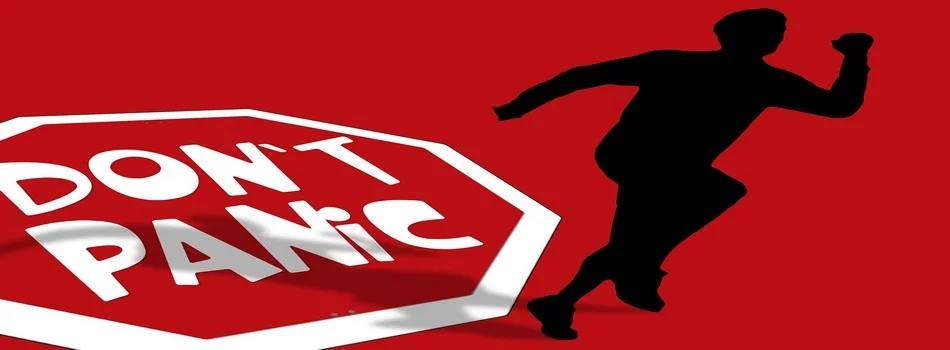This upcoming Sunday is super bowls’ party! For those of you that doesn’t follow theAmerican football, this year one of the teams in the game, The Patriots will add to its incredible list of accomplishments, its 10th final. And if they win, they will break the record of 6 super bowls.
Many sports specialists believe that the team impressive performance is based on its quarterback player, which is considered the best in history, since this kind of football calls for a slyly individualistic approach to score points.
I’m not an expert neither a football follower. But I truly believe in the power of teams or groups, as they are called in the era of social media.
Therefore, what does make a team or group successful or effective?
Besides some obvious characteristics such as clear and shared goals, defined roals, open communication and the presence of motivation and commitment among its members, I would like to share my take on some other important characteristics, especially for social groups such as partner entrepreneurs, women and citizens.
- Talent mix: a team or group made of people that coincide in all won’t be effective. Member talents must complement one another. Some members will be the creative, while others might be more structured or able to define and follow plans. Also, their styles of learning and decision making should vary. According to psychologist and researcher Kathy Kolbe, people has specific conative styles upon we can leverage individually but specially in groups to become effective.
Conation (koh NAY shun) relates to desire, volition, and striving. Conative Style is our natural mental tendency that produces an effort. It’s your own instinctive mode of action, the way in which you would tackle any new task given no instructions, on your own. Kolbe has developed the styles characteristics and methods to help you determine your predominant conative style and how to leverage on your strengths.
The styles are:
- Fact Finder: Precise, judicious, thorough, and appropriate. Loves detail and complexity and facts.
- Follow Thru: Methodical, systematic. Focused, structured, ordered, and efficient. Planning, programming, design, predictability.
- Quick Start: Spontaneous, intuitive, flexible, and fluent with ideas. Deadline and crisis oriented. Need challenge and change, can be impatient.
- Implementer: Hands-on, craft-oriented. Strong sense of 3D form and ability to deal with the concrete.
When groups are made of diverse people the chances to obtain a balanced talent mix, or diverse conative styles, are increased. This fact calls for more opportunities for people from minority groups, such as immigrants, people with disabilities, etc.
- Leadership: there are tons of books, lectures, courses and classifications on leadership, even psychological profiles to identify or recruit leaders as part of traditional organizations.
But in the era of “social anything”, it’s required more than just identifying one leader to follow. Everybody must embrace his or her leadership role. As an individual you are the undisputable leader of your life doings, emotions, desires. People seems to be more aware nowadays about this fact, and for me that’s the reason behind the popularity of self help books, gurus, seminars and everything “empowering” in personal transformation terms.
In groups, the new leadership calls for a shared one among group members, taking turns based on each individual personal characteristic, that position her or him as leader for a specific task or period.
For instance, a football team is led by the coach while training, during the pre and post-game strategy sessions. But on the field the leadership role is turned to the players, rotating the leadership role among them depending on the play and the characteristics of the match. Even on individual sports the athlete depends of a team of coaches, promoters, assistants, etc. to advance towards a successful career.
However, this democratic leadership styles requires of strong emotional intelligence and awareness to manage conflicts due to ego-clashes or perceived injustices.
Gladly emotional intelligence has been recently added to the mandatory characteristic for any professional working in a traditional organization and should be also relevant when deciding on people to collaborate within a social group. This kind of intelligence ensures healthy leadership behaviors, no matter the size of the group or its purpose. Even for-profit organizations might benefit from compassionated, grateful or happy members.
- Culture: by culture I refer to the set of unspoken rules, energy among members and team’s spaces, rituals, symbols that made the group identity. A nourishing culture should inspire and keep highly motivated both the group members and their followers, clients, the public.
More than ever we humans have great visibility and power among each other’s. A recent marketing study shared by the marketing strategies at hootsuite.com revealed that consumer or individuals truss has shifted from traditional authorities such as academia, government or professional “influencers” to peers. Peer to peer knowledge and recommendations are more credible and these strategist’s advice that in 2018 those business that empower more their consumers to recommend them will get more clients and profits from their business investments.
Therefore, striving social groups should communicate and collaborate with other social groups, sharing knowledge and recommending those groups that have served them well. Everybody will benefit.
We have arrived at the end. What do you think? What’s for you the role of the talent mix, the leadership and the culture in groups success? Share your thoughts and questions on the comment section. And let’s get stronger as individuals and as groups!

